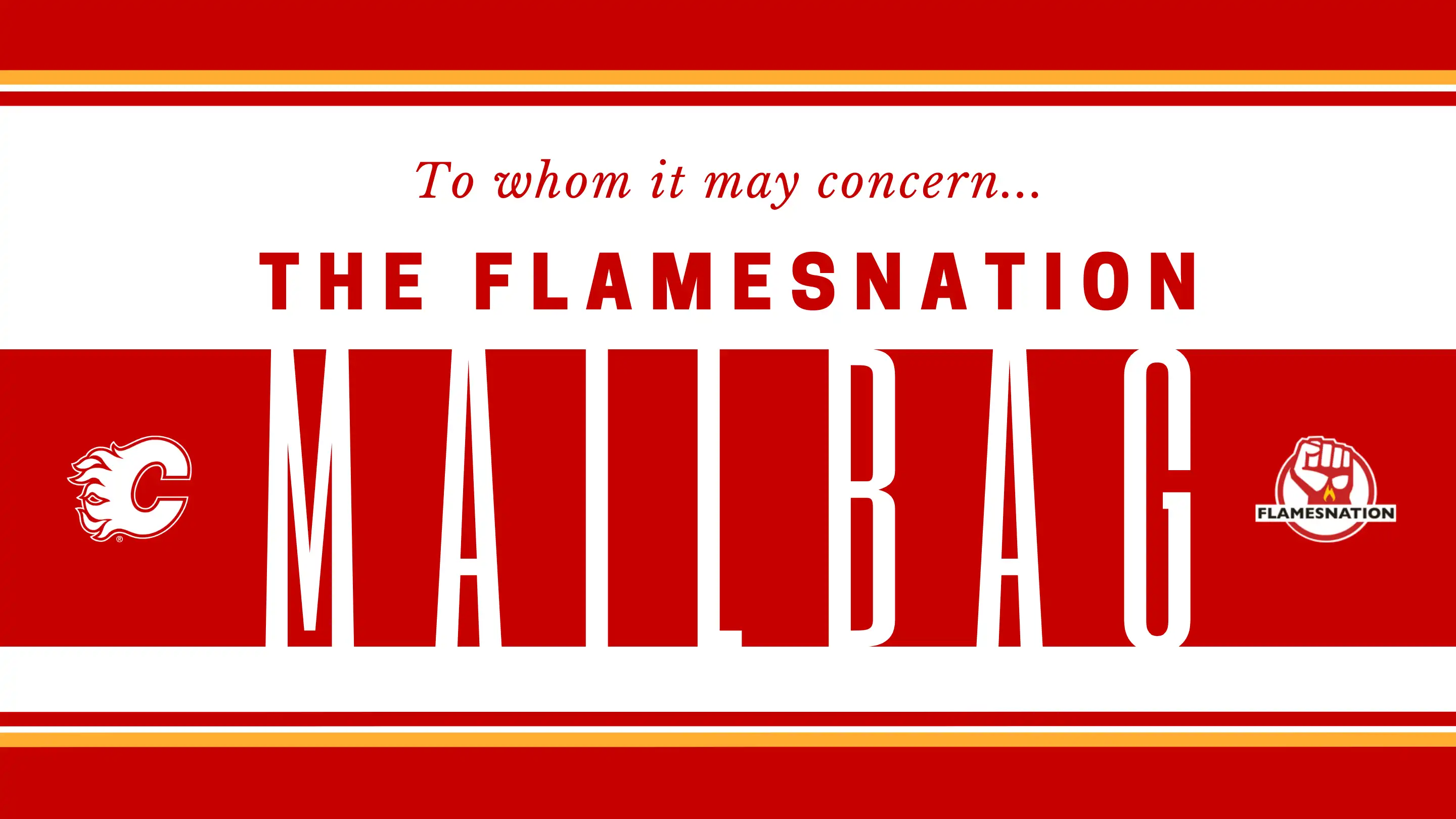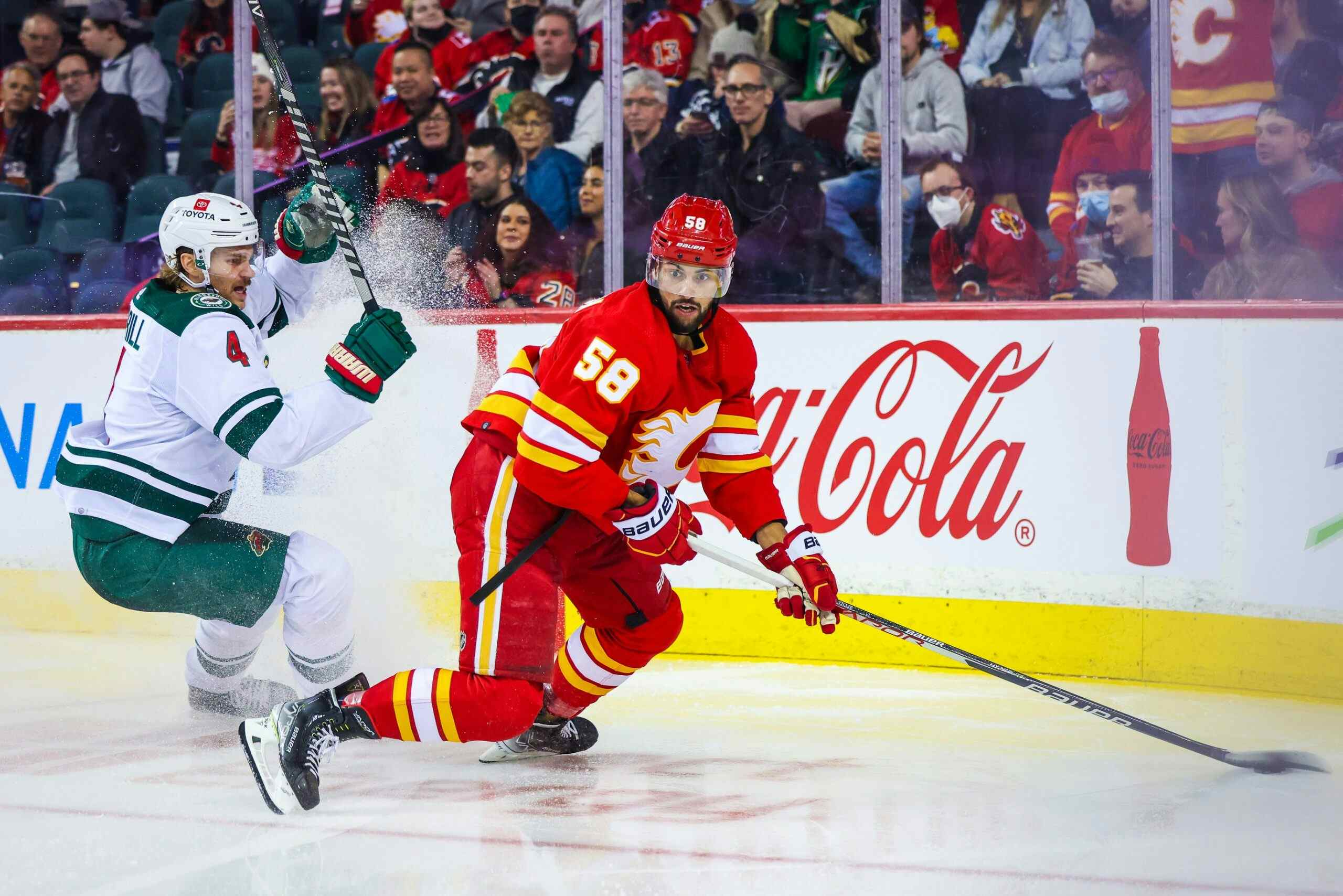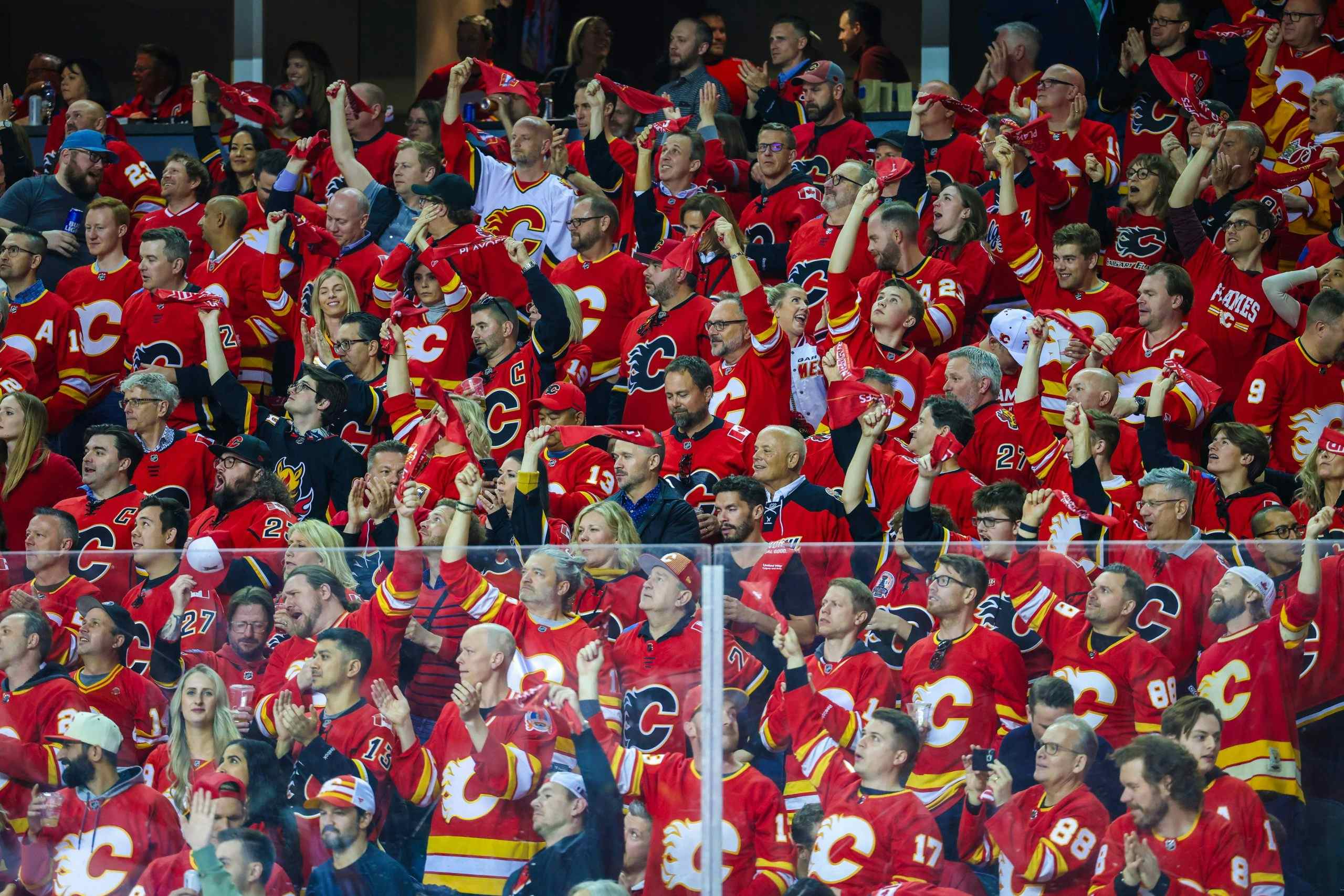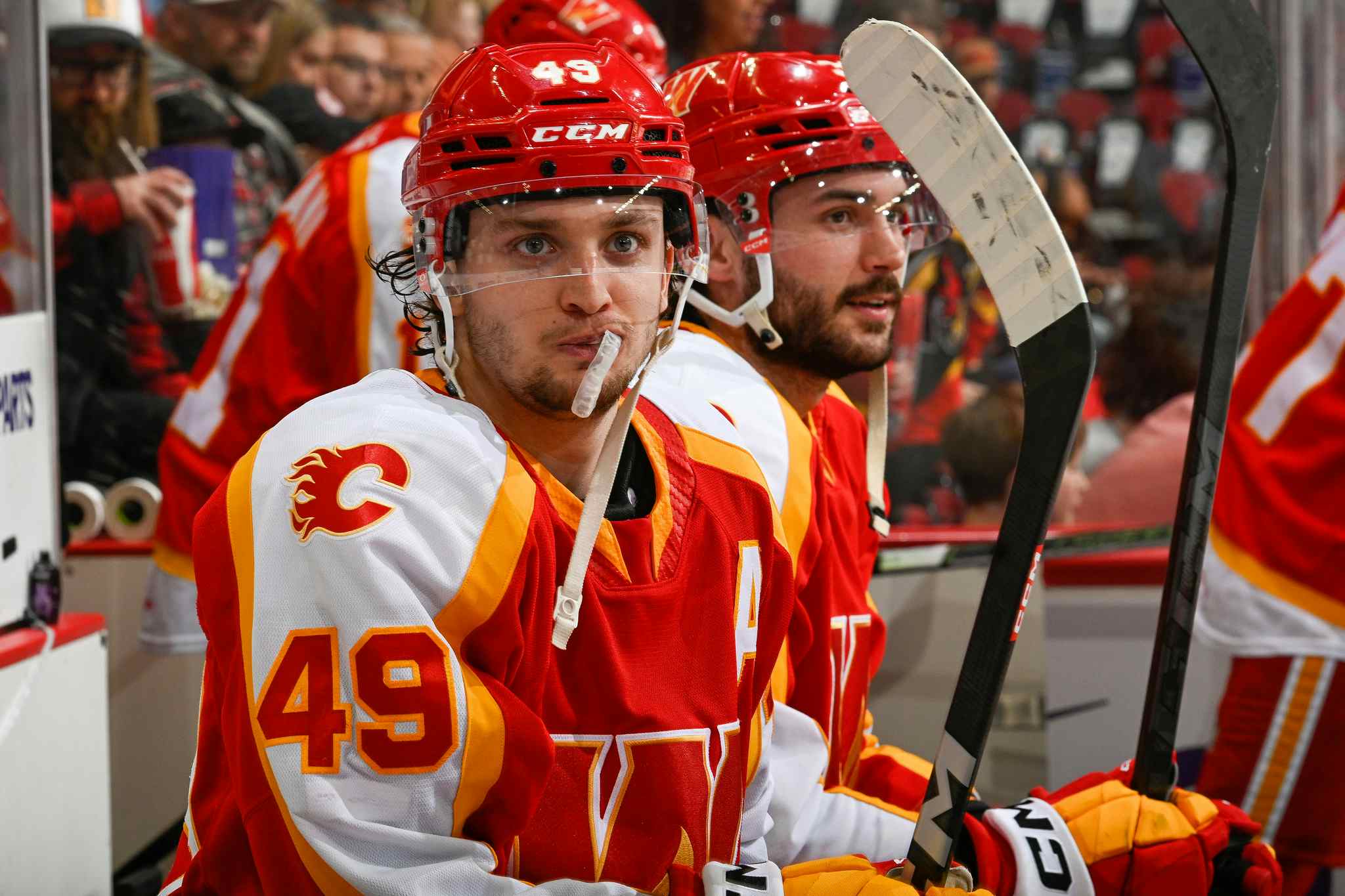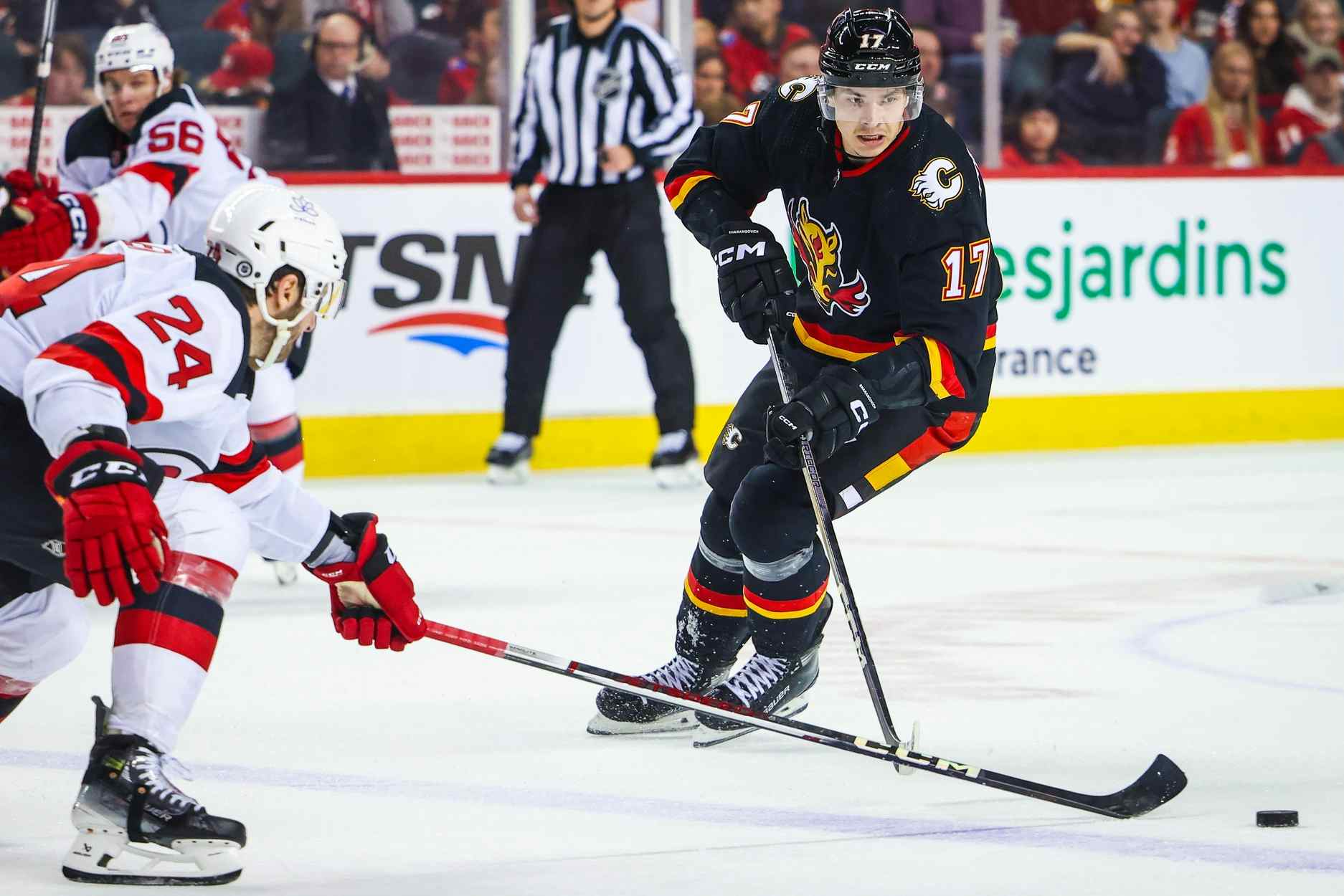What can be learned from the Flames/Ducks season series?
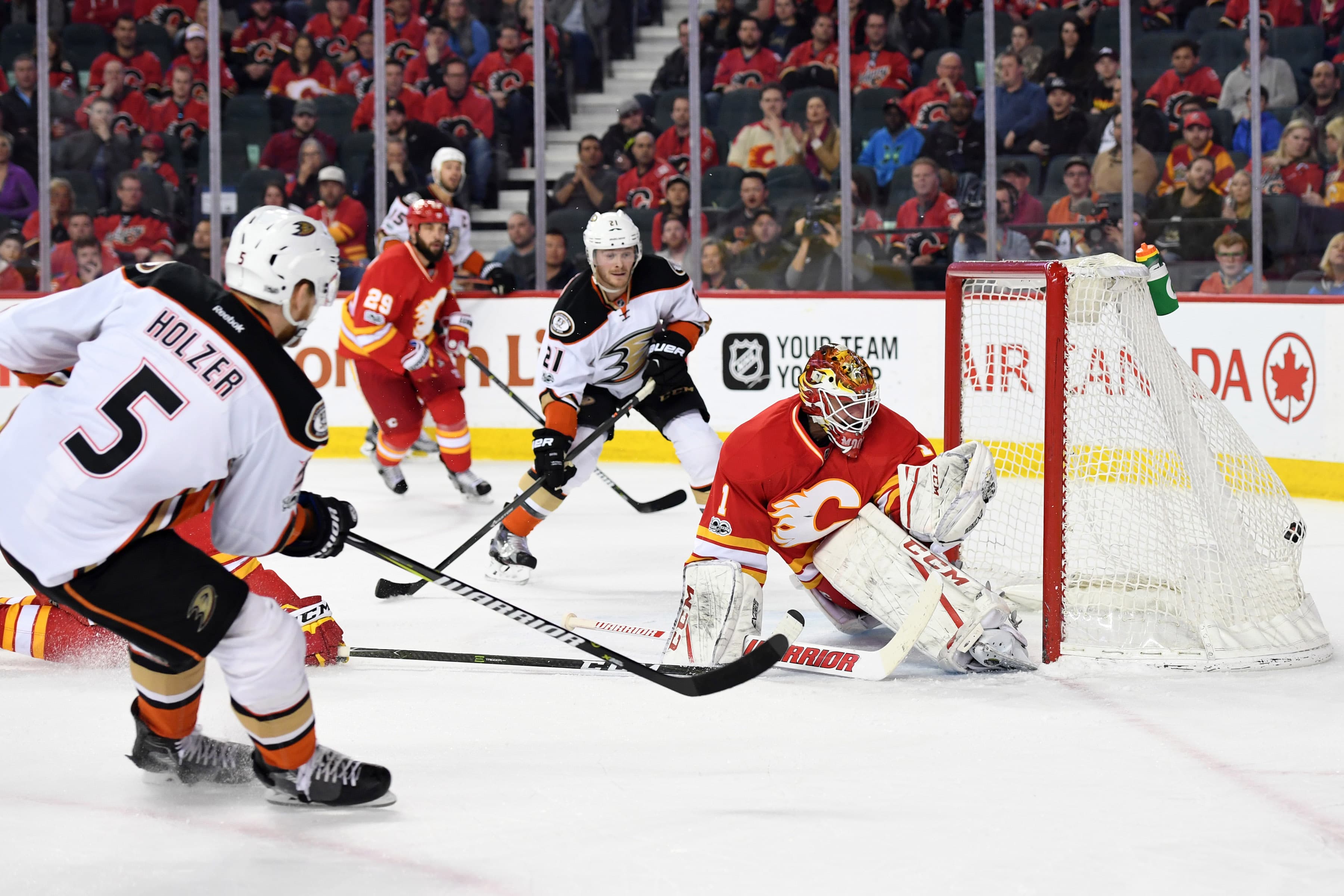
By Ryan Pike
7 years agoThe Calgary Flames lost four of their five regular season matchups with the Anaheim Ducks. Considering the circumstances of those games, the results aren’t exactly encouraging – the Flames twice faced the Ducks on the second half of back-to-backs and had three home dates against them.
What can we learn about the upcoming series from their five previous meetings? Is there a pattern that can emerge that might shed some light on the adjustments the Flames need to make to come out of the first round victorious?
Nov. 6: Calgary 1 at Anaheim 4
The Flames were at the tail-end of a four-game road trip, the night after a walloping by the Kings in Los Angeles, and were as decimated by injury as the club would get this season – Hunter Shinkaruk and Freddie Hamilton dressed. The Ducks were at the end of a homestand and were generally quite sharp.
How did the matchups look?
- Gaudreau – Monahan – Chiasson were matched by Cogliano – Kesler – Silfverberg
- Tkachuk – Backlund – Frolik were matched by Vermette – Rakell – Cramarossa
- Shinkaruk – Bennett – Brouwer were matched by Ritchie – Perry – Getzlaf
- Ferland – Stajan – F.Hamilton were matched by Wagner – Garbutt – Boll
In general, Kesler was used to shut down the Monahan line and Vermette was used against 3M (who had not yet really cemented themselves as offensive movers and shakers at that point). Functionally, it seems Carlyle’s hope was to stay even with his stop two lines and then use the Perry/Getzlaf line to exploit Calgary’s weaker third line.
From the recap, why did the Flames lose?
The Ducks weren’t particularly great, but the Flames were bad in precisely the ways they’ve been bad all year to this point. A defensive zone lapse turned into the first goal. Defensive zone penalties and a really hapless penalty kill turned into two more goals. Four players getting caught up ice on a rush led to the other goal heading back the other way.The Flames keep making mistakes at key times that end up in the back of their net.
Dec. 4: Anaheim 3 at Calgary 8
The flu-ridden Ducks were playing their third road game in four nights, while the Flames were fresh and finishing off a three-game home stand. This game was not close, particularly since Jonathan Bernier couldn’t stop a beach ball on this night – he was only kept in because John Gibson had diarrhea, according to Carlyle.
Since the Flames had last change, the deployments and assignments were a bit different:
- Tkachuk – Backlund – Frolik were matched against Ritchie – Getzlaf – Perry
- Gaudreau – Bennett – Chiasson were matched against Silfverberg – Kesler – Cogliano
- Versteeg – Monahan – Brouwer were matched against Cramarossa – Vermette – Perry
- Ferland – Stajan – Hathaway were matched against Shaw – Garbutt – Kase
In part because of shaky goaltending and in part because of matchups, the Flames were better than the Ducks in every situation. From the recap:
The Flames were simply more energetic, better and luckier than the Ducks tonight. Anaheim was the victim of circumstances here on the back end of a back-to-back, but the Flames made a lot of scoring chances happen with smart individual efforts – half of Calgary’s goals were preceded by nice back-checking or battling on the boards. But it also helps that the Ducks seemed completely terrified of the Flames when they had the puck, particularly after the Flames got a 3-1 lead.They managed to out-score the Ducks both at even-strength (5-2) and on special teams (3-1). When you do that, you should win most of the time.
Dec. 29: Anaheim 3 at Calgary 1
This was a bit of an odd one. The Flames were coming back from the road for their first home game after the Christmas break. The Ducks were heading out for their first road game after Christmas (and were in the first game of a back-to-back).
The match-ups were a bit odd:
- Gaudreau – Bennett – Chiasson were matched against Perry – Vermette – Rakell (but also saw a lot of Kesler’s line)
- Versteeg – Monahan – Ferland were matched against Ritchie – Getzlaf – Kase
- Tkachuk – Backlund – Frolik were matched against Cogliano – Kesler – Silfverberg (but also saw a bit of the Vermette line)
- Bouma – Stajan – Hathaway were matched against Shaw – Cramarossa – Boll
After the Flames got down a goal, though, Gulutzan functionally abandoned tactical line-matching mid-game in an effort to generate offense, focusing on zone starts rather than specific matchups. Granted, the Flames were also missing Dougie Hamilton due to illness. It also doesn’t help that the Flames kept taking penalties, which really hurt their ability to generate chances at even strength. From the recap:
In my preview, I noted that the Flames needed to stay out of the box. Regardless of the circumstances, they gave Anaheim six man advantages. They scored on two. That’s the game. Obviously teams can’t be pushed around, but they also can’t take too many retaliatory penalties.In addition, the Flames were missing their best pure defenseman – or at least the one that’s added the most to their lineup this year – and really seemed to struggle generating much off the rush. Once they got down a goal, they really struggled to get much going and it made life easy on Anaheim.
April 2: Anaheim 4 at Calgary 3
In their first game following clinching a playoff spot, and the finale of a four-game home stand, the Flames faced the Ducks in their third and final home meeting. The Ducks had played the night before in Edmonton. It was a tight game dictated by defensive miscues by a Flames team that seemed a little too loose.
Gulutzan’s match-ups:
- Gaudreau – Monahan – Ferland were matched against Cogliano – Kesler – Silfverberg
- Tkachuk – Backlund – Frolik were matched against Ritchie – Getzlaf – Eaves
- Versteeg – Bennett – Chiasson were matched against Rakell – Vermette – Perry
- Bouma – Stajan – Brouwer were matched against Wagner – Thompson – Shaw
This was one of those games where the Ducks’ depth and the Flames’ defensive wonkiness – previously seen in November – were on display. Calgary’s attention to detail just wasn’t there, leading to turnovers, penalties and many scoring chances against (regardless of matchups). The game basically came down to the Ducks’ fourth line generating more offense than the Flames’ more expensive fourth line.
From the recap:
The Flames had very little going on at even strength. They’re healthy and had last change at home, but they really seemed to have no answer for Anaheim’s pressure at 5 on 5. It also doesn’t help that they were occasionally very bad in their own end, frequently just tossing the puck up the boards from behind the net and hoping that Anaheim wouldn’t grab the loose puck.It’s a shame, too, because while this wasn’t a game they had to have it was up for grabs in the third period and they just couldn’t grab hold of it.
April 4: Calgary 1 at Anaheim 3
Just two days after their loss in Anaheim, the Flames headed to Honda Center for the Ducks’ third game in four nights. To the surprise of few, they did not win. The Ducks had last change and oddly seemed to be fine with using the same general matchups that Gulutzan chose 48 hours prior:
- Gaudreau – Monahan – Ferland were matched by Cogliano – Kesler – Silfverberg
- Tkachuk – Backlund – Frolik were matched by Rakell – Getzlaf – Eaves
- Versteeg – Bennett – Chiasson were matched by Ritchie – Vermette – Perry
- Bouma – Stajan – Brouwer were matched by Shaw – Thompson -Wagner
The game was generally pretty close, but the Ducks took advantage of a few miscues by the Flames to get ahead. And then the third period degraded into a clown show of fights, intimidation and silliness after Mark Giordano’s (inadvertent?) knee-on-knee collision with Cam Fowler.
From the recap:
There are two big reasons. Goals and stupidity.The Flames were the better team for the first 25 minutes of this game. Even when the Ducks started taking the game over, because they’re pretty good, the Flames had four power play opportunities – including a 48 second 5-on-3 advantage in the third period. They had six shots and zero goals. In a game that these guys had to have in order to avoid playing Chicago in the first round, that’s unacceptable.The other reason was stupidity, in that the Flames allowed themselves to be sucked into the hugging and punching of the final 12 minutes of this game. The Ducks are a big, mean veteran team. They have the ability to drag teams into the muck if you let them. Just as they did in that awful game the Flames played against Los Angeles last week, the Flames let the Ducks drag them into the muck.
The takeaways
The Flames lost four of five games against Anaheim. The common threads in their defeats seems to be the following:
- The Ducks were patient and took advantage of defensive mistakes that the Flames made.
- The Ducks generated more from their special teams opportunities than the Flames did. (And the defensive mistakes the Flames made often led to them taking penalties.)
- Once they got a lead, the Ducks were good at leaning on the Flames and grinding things out until the clock ran down.
- The Ducks did not seem to care about matchups, with the focus seemingly being letting two of their top three lines negate the Flames’ top lines (Monahan’s line and 3M), allowing their third line and fourth line to eke out enough offense at even strength to get the win.
Recent articles from Ryan Pike

